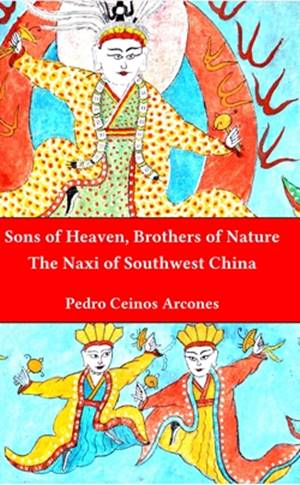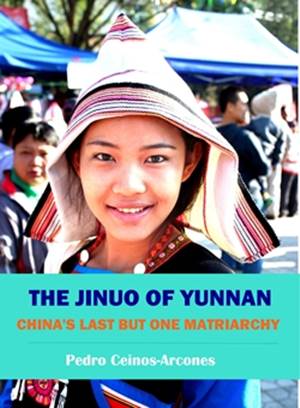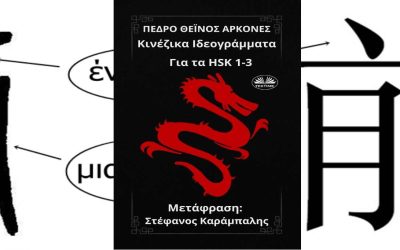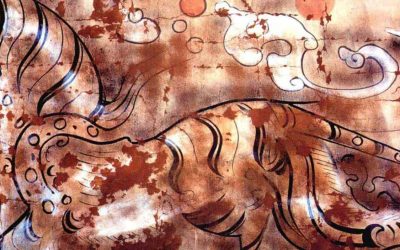To have five sons, rich, vigorous, literate and who become mandarins: this is the ideal of any Chinese family. From this matrix idea emerged the various types of popular images that are displayed in all households: Wu Zi Deng Ke (五子登科), Have five official children! And Baizitu (百子图), table of one hundred children (from King Wen).
1° To obtain the fulfillment of this dear desire, the spouses have recourse to the most obliging deities:
- a) Guanyin pusa (观音菩萨), the «most merciful», the one who gives children (Guanyin songzi). In various areas of Jiangnan, women offer the goddess a pair of beautifully embroidered shoes in order to get her help and obtain the birth of a child. Other times, one of the shoes placed at the foot of her statue is removed, then, after the birth of the child, is replaced by a pair of artistically embroidered shoes.
- b) The daughter of the god of Taishan, the famous Bixia Yuanjun (碧霞元君), also called The Celestial Lady Delivering Sons (Tianxian songzi), The Lady of Taishan (Taishan niangniang), or the Lady of Jade Delivering Sons (Yunü songzi). Her images, very varied in form, are very common and there are myriads all over China.
The goddess’s assistants are usually:
The Posterity Matron Zisun niangniang (子孙娘娘)
The Fertility Matron. Zhusheng niangniang (注生娘娘)
The Midwife who triggers the birth. Cuisheng niangniang (崔生娘娘)
The Matron who brings the child. Songsheng niangniang (送生娘娘)
- c) The immortal Zhang Guolao, riding on his donkey and carrying a child in his arms.
Kuixing, the god of literature, who is prayed for intelligent children in letters.
Lu Dongpin, the immortal of letters.
- d) The genius Zhang Xian, the protector, armed with a bow and firing an arrow at the Celestial Dog, the great enemy of childhood. His son Jiantan is in charge of delivering children to those who beg him.
- e) An-kong, very honest in Anhui, near Wuhou; he is also invoked to obtain offspring.
- f) Many pagans make pilgrimages to renowned pagodas, where the famous Buddhas are honored. For example, in Emeishan, Sichuan province; Wutaishan, Shanxi province; Jiuhua shan, Anhui province; Langshan, Jiangsu province.
In this last place, a wheel, finished in a small pagoda, is set in motion by those who wish to obtain an heir. It is a source of income for the monks.
- g) Qilin Songzi. The unicorn that provides children. The paintings depict this fabulous animal, mounted by a young woman with a child in her arms. For this reason, the unicorn appears on top of the bride’s red chair.
2° The images of good luck, or of good omens, are unlimited in number; they express a desire rather than a true prayer.
For example. Four children: one wears a branch of jujube (zao) covered with fruit, the second a sheng musical instrument, the third has a seal, emblem of the dignity of the mandarins, the fourth holds a halberd and the insignia of a military mandarin. The allusion of the image is:
To generate (sheng) quickly (zao) children of high dignity.
The word game works on both sounds: zao 枣, jujube, sounds just like zao 早, soon; and sheng 笙, musical instrument, just like sheng 生, generate. It’s just a wish expressed to the bride, often without a superstitious idea.
3° Means of procreating a male child.
(a) Zaonan. A household that has the misfortune of not having a son, but only girls, performs the following action. The first girl to be born will be named after a boy: and the charm will be broken; the boy born after her will surely be a boy. It’s called fathering a child.
(b) Another less harmless procedure is to frighten the soul of the child who dares to incarnate in the womb of the mother. For that purpose the young wife carries a silver knife in her chest. This knife is also used as protection against harmful influences and against evil goblins.
(c) Other superstitions are practiced to recognize the sex of the child before birth. Diviners, character casters and seers are frequently consulted.
This practice is not new! In 680 B.C., the hegemon Qi Huangong consulted the turtle and drew lots to find out the sex of a child to be born to him.
4° Influence of the spirits of the bed, male and female. Chuang-gong 床公and Chuangmu 床母. The image of these spirits is stuck on the bed or in its vicinity; they preside over the conception of the children.
5° Talismans. Taoist monks and teachers draw talismans to speed up childbirth. They are grimoire traced on strips of yellow paper; in the paper horse shops [so called because in many ceremonies papers are burned where a horse is drawn, which will carry the petition to the gods] they sell them to the pagans for this use. Sometimes they are applied to the pregnant woman’s body, other times they are burned and the ash mixed with a potion is swallowed.
6° The Mirror.
A pregnant woman should avoid any sinister encounter; for example: funerals, visits to the sick.
It is prudent to provide her with a small mirror suspended on her chest to ward off evil spirits that may harm the child.
7° Silkworm breeders fear the entry of a pregnant woman into the room where the worms feed.
8° Boy dressed as a girl.
After the death of one or more children at an early age, parents put into practice a remedy to preserve the life of the next born: they dress him in a girl’s disguise, to deceive demons.
Girl’s name.
For the same reason, the newborn will be given the name of a small nun. In this way they will keep an heir of the family, a son destined to offer sacrifices to his deceased parents: two things of first importance.
9° The figurines.
Some pagodas display children’s figurines. The women go there to choose one of their choice, they pass a necklace of sapecas around its neck, the monk gives it a name, and the woman takes it with the assurance that she will soon have a child.
10° Exposure of the tablet of the midwife who activates the childbirth.
At home, at the time of delivery, the tablet of the midwife who triggers the delivery is exposed. Several goddesses perform this service, including Kekou niangniang, in the Huzhou district of Anhui.
11° To make a vow before a tutelary divinity.
To obtain a male child, a vow will be made to a divinity, promising to deliver the newborn as a monk to his service, and after birth he will indeed be clothed as a monk as a token of gratitude. In this case, the parents will be obliged to rescue him through alms, either in money or in kind. The ransom price is paid to the pagoda.
12° To offer a brick.
A brick is taken from a bridge called «Guanyin Bridge» or «Unicorn Bridge» and taken to the children’s room. It is a play of words between 砖 zhuan, brick and 转 zhuan, transmit, offspring. At the same time, it is an allusion to Guanyin, the godess who gives children and Qilin Songzi, the unicorn who gives children.
This is one of the most curious customs for wishing a family the birth of a male heir. Its name is:
13° To offer a melon.
This offering is made on the 15th day of the eighth lunar month. The melon must be skillfully stolen from a particular garden, and the thief must not be seen, otherwise the charm would lose all its effectiveness.
The melon, carefully boiled, is dressed like a baby, the figure of a child is drawn on the bark, and then taken to the sound of music and firecrackers to the person to whom one wants to give it, as a gift of a child. The melon is placed on the bed, covered with a quilt, and the distinguished old man who must place it there says:
«Whoever plants melons harvests melons, whoever plants peas harvests peas. ”
A good dinner is served to the porters. The young woman who wishes to become pregnant must eat the melon, and she will surely bring a beautiful child into the world.
14° Similarly, on the 15th of the 8th lunar month, women do not empty their night bedpans, commonly called zitong in the field. Neighbors wouldn’t stop stealing the lid or the pot itself to have a child. It is known that women, after cleaning this vase, leave it outdoors and place the lid so that the air and wind dissipate the bad smell. Why this fear? A simple play on words. The zi character 子, child, is the same zi in zitong.
From: Henry Doré. Manual of the Chinese Superstitions.
More posts on Chinese culture
Zhang Yongzheng, the master of deluding reality
Zhang Yongzheng, the master of deluding reality Reality is an illusion, say Buddhist texts. And each of Zhang Yonggzheng's (Gansu, 1978) works plays with this concept to remind us again and again that there is no immutable reality but a fluid universe of forms that...
The book Hanzi for HSK 1-3 now available in Greek language
The book “Hanzi for HSK 1-3” now available in Greek language This April, the translation of my book Hanzi for HSK 1-3 has been published in the main digital bookstores in Greece. The Greek version of this book, from the pen of Stefanos Karampalis, has been one of...
Portrait of a Mandarin in 1800
Portrait of a Mandarin in 1800 This was the year in which a very interesting book was published, which through 60 portraits, tried to show some aspects of life in China to the western public. A book now in the public domain, from which we adapted "A Mandarin of...
The art of laying out gardens among the Chinese
The art of laying out gardens among the Chinese In the 1740s, William Chambers travelled on three trading voyages to China with the Swedish East India Company. He was the first European to study Chinese architecture methodically. In a book published in 1757, Designs...
The secret treasure of ancient Chinese art
The secret treasure of ancient Chinese art China has a fabulous artistic treasure hidden from the eyes of the public and specialists. It is her best kept treasure, because given the dispersion of its location, the difficulty of conservation and even evaluation and...
2,000-year-old paintings in a Chinese tomb
2,000-year-old paintings in a Chinese tomb It has been more than 10 years since the publication of The complete collection of murals unearthed in China, a dozen or so books describing with abundant full-color photographs the frescoes discovered in Chinese tombs....
More posts on China ethnic groups
The main branches of the Yao Nationality
The main branches of the Yao Nationality The Yao are extended in a wide area of Southeast Asia, as Fei Xiaotong (1), one of the first anthropologists to study them, asserts: "The Yaos characteristically lived in small, widely-scattered communities. The Yaos of Guangxi...
The Yao nationality puzzle
The Yao puzzle The Yao are one of the indigenous peoples of China remarkable for the following characters: - Big population. According to the 2000 census there were 2,600,000 Yao only in China. - Big dispersion. The Yao are dispersed for all the provinces of South...
Jinxiu Yao Autonomous County
Jinxiu Yao Autonomous County It was established in 1952 with the name of Dayaoshan (Big Mountain of the Yao) Autonomous Zone, but in 1966 the name was changed to Jinxiu Yao Autonomous County. It is a mountainous county with rugged lands and a climate hot and wet. It...
Different marriages of the Yao people
Different marriages of the Yao people Among the Yao there are different kinds of marriage, though all they have some common characteristics: - They use antiphonal songs to court each other. - They have the freedom to choose their love partners, but they not have...
The drum of the clan among the Balou Yao
The drum of the clan among the Balou Yao The Yao are one of the peoples who inhabit the mountains of southern China. They are composed of numerous branches, with languages and cultures that are quite different. One branch of the branches is known as White Pants Yao...
The religion of the Pai Yao
The religion of the Pai Yao The Pai Yao living in Liannan County believe that the world is populated by a multitude of spirits that they roughly divide into big and small spirits. According to their behavior regarding human beings, they are classified also as good or...















